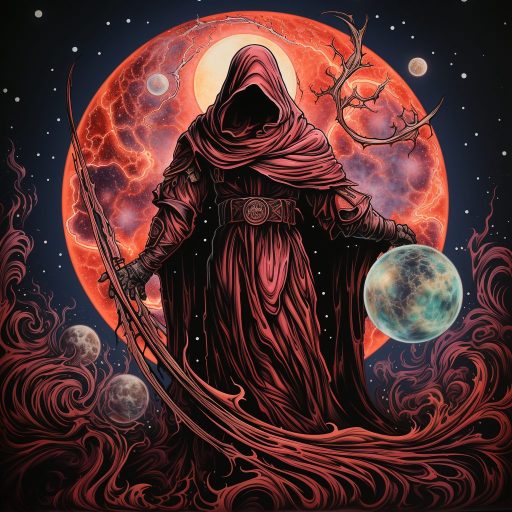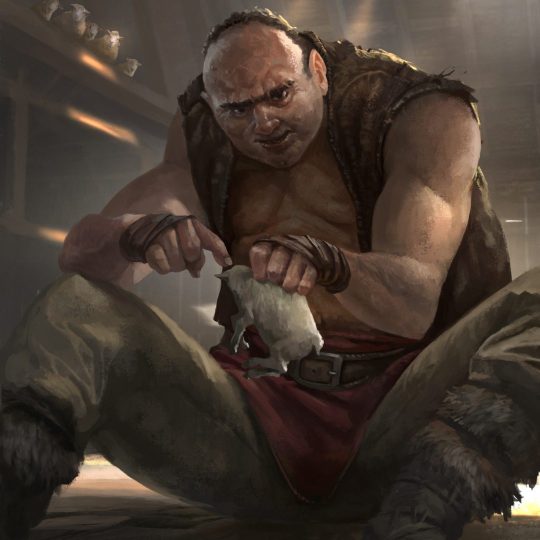
Embracing the Core Principle of Quest RPG Makes a Guide’s Life Fun, Rewarding and Easy
Over at Nerdarchy the YouTube channel Nerdarchists Dave and Ted share their experience and a general overview of playing Quest RPG. I fell in love with this whimsical RPG a while back and when my turn in the hot seat came around on our Tuesday night games at Nerdarchy Live I couldn’t wait to Guide the group through creating a story with Quest RPG. In the video the guys discuss their impression of the game from the player side of things and mention their curiosity about the nuance of being the Guide — Quest’s iteration of a Game Master. I’m the Guide for the group in which they play and as a follow up to the initial thoughts I shared after first discovering this wonderful RPG I aim to do so right now. Let’s get into it.
In Quest RPG the story is everyone’s to tell
Quest distinguishes itself from other RPGs most succinctly through the abilities of the characters. The entire game itself is designed to facilitate group storytelling and through play this elegance becomes extraordinarily evident but to me a single sentence sums up what makes Quest special.
“Think of your abilities as ways to take control of a scene.”
Embracing this core principle opens up limitless possibilities. Although this relates to the players’ side of things it’s so important to keep this distinction in mind as a Guide. Despite already being a very easy RPG to grasp and start playing taking this axiom to heart makes the Guide experience more fun, rewarding and even easier. Quest cleaves to the very heart of what RPGs are built upon — several people play the role of a single character and the Guide manages everything else. This profound statement about abilities means characters’ abilities aren’t a means to overcome a challenging situation but to sculpt the shape of it entirely.
Sounds like some pretty heady stuff, huh?
What makes Quest so special from the Guide’s perspective is the game’s conceit that no one is assumed to have much beyond a very vague idea of the emergent story in a game. In fact the ad lib style character sheet discussed in the video has a counterpart for the eponymous quests themselves. I can’t tell you how many of these I’ve written for fun. The game book includes lots of examples too, many with really evocative names I’ve been inspired by. I’ve even mentioned one or two throughout our Ingest Quest 2 campaign.
Nuts and bolts of Quest RPG
The beauty of Quest lies in how the lean-as-can-be rules and straightforward approach as a storytelling game truly create a unique RPG experience. To address Dave and Ted’s curiosity there’s really no great mystery to managing the mechanics of Quest. Most of the game book’s Guide sections offer guidance on how to engage players and frankly just straight up roleplay. Quest is written in such wonderfully plain language it’s simply fun to read but also there’s a deep complexity at work. Not mathematically but I’d venture to say psychologically.
Quest’s designers understand storytelling and how it connects to the RPG experience so guidance for Guides includes things like listening and responding, respecting boundaries and being flexible. Alongside these useful insights there’s examples of basically the elements of any story. Anything from offering clues with obvious sensory associations like Red Key, Red Door to putting something in a scene clearly meant for a character to interact with using a particular ability represent Quest’s mechanics in a much more nuanced way than an appendix on combat maneuvers or bestiary of complex creatures.
The game does include creature mechanics but in a very basic way — and I love it! If I’m honest when I run a game of 5E D&D or pretty much any other RPG monsters with all sorts of bells and whistles don’t excite me a whole lot so Quest is just about perfect for my taste. NPCs for the most part are far less powerful than the player characters. Commoners, Minions and Bosses each have Hit Points and Attack…and that’s all. The game book has a menu of various NPC Features to spice things up if a Guide wishes and there’s a suggestion to give Bosses or even special Minions an ability from a character Role too.
There are actually two pages nestled near the back of the book with some combat crunch meant to help a Guide to avoid overwhelming characters with deadly combat. It’s a fairly simple calculation but I confess I never do any of this stuff for Quest or any other RPG. Mostly this is because games tend to take hard left turns into unknown territory almost immediately after starting to play. Here again I’ve got to praise Quest’s simplicity. Without linear character growth incorporating ever-growing health and damage output it’s so incredibly easy to manage NPCs. In all the games we’ve played so far every NPC the characters faced was nothing more than a Minion or a Boss with one special feature — from Challah at the Gala’s mutates to the Flanergy Monsters assaulting my real life house in Reality Bites. (We jettisoned the fourth wall.)
Circling back around to my initial point Quest is the best RPG I’ve ever come across for the kind of experience I most enjoy. The game almost teases and tempts a Guide to meticulously plan when faced with character abilities like Impression. This is an Invoker ability wherein “you brush against a creature for a fleeting moment, feeling its desires. The guide chooses and reveals to you something specific that the creature routinely craves. You become cursed to also crave that thing and cannot use Impression again until you fulfill the desire. When you fulfill it once, the curse is lifted.” Lots of abilities interact with the world and NPCs in narrative ways like this.
Instead what Quest invites a Guide to do is imagine a truly fantastical place, set a big scene and offer to share it with friends. No one knows what will happen, but by using the game’s tools to draw players in they’ll in turn use their abilities to shape a story together. All the trials, clues, challenges and consequences aim not so much at testing characters’ mettle but instead as components for them to construct memorable experiences. Quest challenges players — and Guides — in a different way than other RPGs I’ve experienced. Turning the mechanical dial so far down sort of turns the roleplaying and improvisational dial way up, which really feels refreshing to me.
To sum it all up Quest is an RPG designed with group storytelling at the forefront. A Guide’s tools and resources along with very simple mechanics all aim to create opportunities to pass the ball around the group and shape the direction and outcome of each scenario together. It’s far and away the easiest RPG I’ve ever run and hits on all the notes I enjoy the most in these experiences.
*Featured image — Quest’s art evokes wondrous adventures waiting for you to discover. [Art by Grim Wilkins]










Pingback: Quest RPG is Perfect for a Live Roleplay Stream and You’ll Never Guess Why – Nerdarchy
August 24, 2021 at 1:41 pm